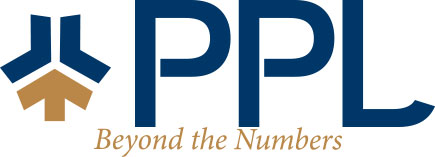Final Rule Issued Effective July 1, 2024
What does this mean?
The Fair Labor Standards Act final rule will take effect on July 1, 2024. Revisions include increases to the standard salary level and the highly compensated employee total annual compensation threshold and the timely updating of these earnings.
Salary thresholds will increase in two phases. Beginning July 1, 2024 the threshold increases from $684 weekly to $844.00 weekly ($43,888 annually). Six months later, January 1, 2025 the salary threshold will increase again to $1,128 weekly ($58,656 annually).
Employees employed as executive, administrative, professional, computer and outside sales are exempt from both the minimum wage and overtime pay regulation. To qualify for exemption, employees generally must meet certain tests regarding their job duties and be paid on a salary basis at not less than $684 per week.
Summary of changes:
- The salary thresholds required for exempt status will increase from $35,568 to $43,888 starting on July 1, 2024, and to $58,656 starting on January 1, 2025.
- The salary threshold for highly compensated workers will increase from $107,432 to $132,964 starting on July 1, 2024, and to $151,164 starting on January 1, 2025.
- The salary thresholds will be updated every three years starting on July 1, 2027.
Listed below are employee exemption tests that must be met to determine qualification.
Executive Exemption
To qualify for the executive employee exemption, all of the following tests must be met:
- The employee must be compensated on a salary basis(as defined in the regulations) at a rate not less than $684 per week;
- The employee’s primary duty must be managing the enterprise, or managing a customarily recognized department or subdivision of the enterprise;
- The employee must customarily and regularly direct the work of at least two or more other full-time employees or their equivalent; and
- The employee must have the authority to hire or fire other employees, or the employee’s suggestions and recommendations as to the hiring, firing, advancement, promotion or any other change of status of other employees must be given particular weight.
Additional information on the executive exemption can be found here.
Administrative Exemption
To qualify for the administrative employee exemption, all of the following tests must be met:
- The employee must be compensated on a salary or fee basis (as defined in the regulations) at a rate not less than $684 per week;
- The employee’s primary duty must be the performance of office or non-manual work directly related to the management or general business operations of the employer or the employer’s customers; and
- The employee’s primary duty includes the exercise of discretion and independent judgment with respect to matters of significance.
Additional information on the administrative exemption can be found here.
Learned Professional Exemption
To qualify for the learned professional employee exemption, all of the following tests must be met:
- The employee must be compensated on a salary or fee basis (as defined in the regulations) at a rate not less than $684 per week;
- The employee’s primary duty must be the performance of work requiring advanced knowledge, defined as work which is predominantly intellectual in character and which includes work requiring the consistent exercise of discretion and judgment;
- The advanced knowledge must be in a field of science or learning; and the advanced knowledge must be customarily acquired by a prolonged course of specialized intellectual instruction.
Additional information on the learned professional exemption can be found here.
Computer Employee Exemption
To qualify for the computer employee exemption, the following tests must be met:
- The employee must be compensated either on a salary or fee basis at a rate not less than $684 per week or, if compensated on an hourly basis, at a rate not less than $27.63 an hour;
- The employee must be employed as a computer systems analyst, computer programmer, software engineer or other similarly skilled worker in the computer field performing the duties described below;
- The employee’s primary duty must consist of:
-
- The application of systems analysis techniques and procedures, including consulting with users, to determine hardware, software or system functional specifications;
- The design, development, documentation, analysis, creation, testing or modification of computer systems or programs, including prototypes, based on and related to user or system design specifications;
- The design, documentation, testing, creation or modification of computer programs related to machine operating systems; or
- A combination of the aforementioned duties, the performance of which requires the same level of skills.
The computer employee exemption does not include employees engaged in the manufacture or repair of computer hardware and related equipment. Employees whose work is highly dependent upon, or facilitated by, the use of computers and computer software programs (e.g., engineers, drafters and others skilled in computer-aided design software), but who are not primarily engaged in computer systems analysis and programming or other similarly skilled computer-related occupations identified in the primary duties test described above, are also not exempt under the computer employee exemption.
Additional information on the computer employee exemption can be found here.
Outside Sales Exemption
To qualify for the outside sales employee exemption, all of the following tests must be met:
The employee’s primary duty must be making sales (as defined in the FLSA), or obtaining orders or contracts for services or for the use of facilities for which a consideration will be paid by the client or customer; and
The employee must be customarily and regularly engaged away from the employer’s place or places of business.
The salary requirements of the regulation do not apply to the outside sales exemption. An employee who does not satisfy the requirements of the outside sales exemption may still qualify as an exempt employee under one of the other exemptions allowed by Section 13(a)(1) of the FLSA and the Part 541 regulations if all the criteria for the exemption is met.
Additional information on the outside sales exemption can be found here.

